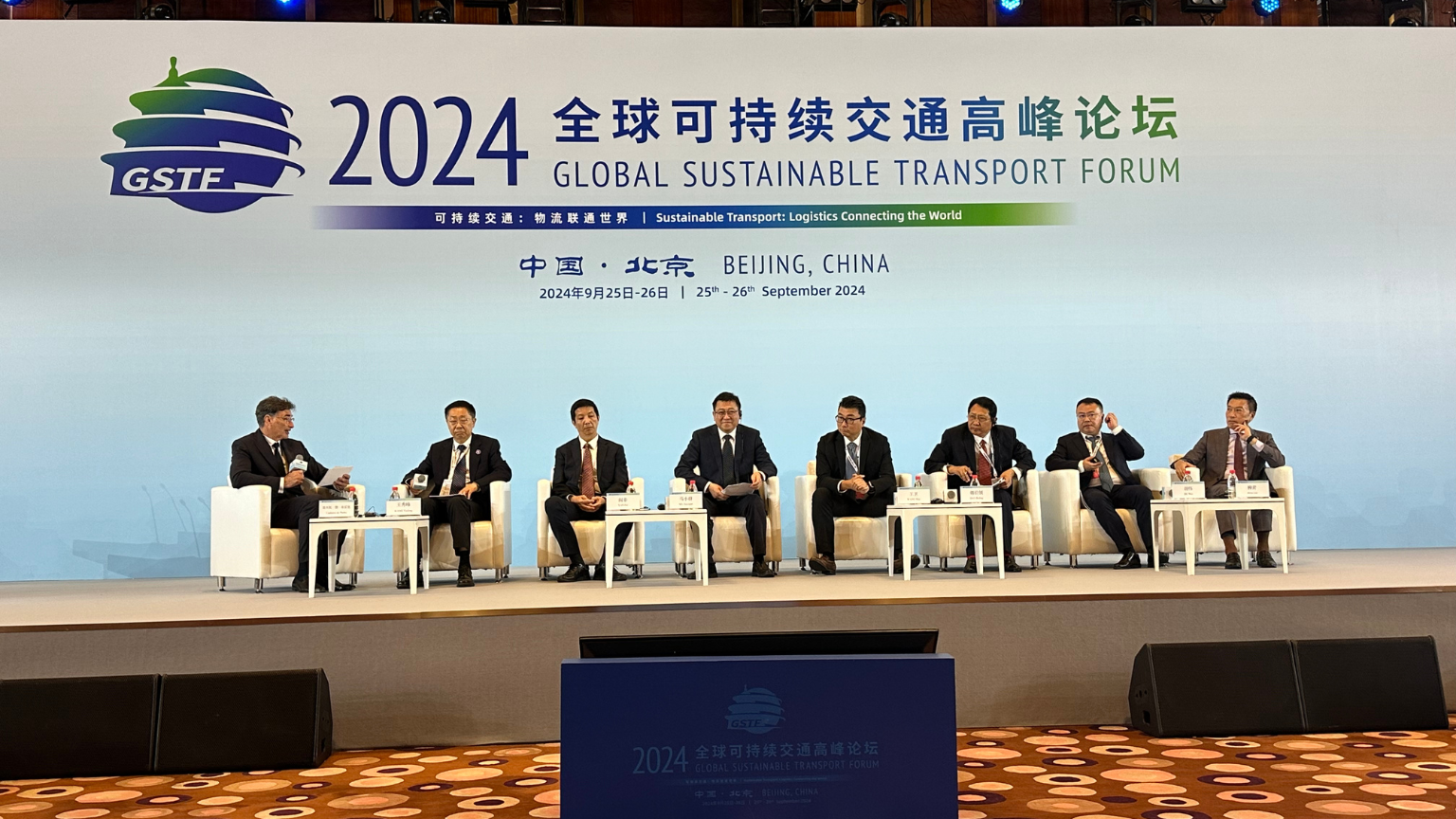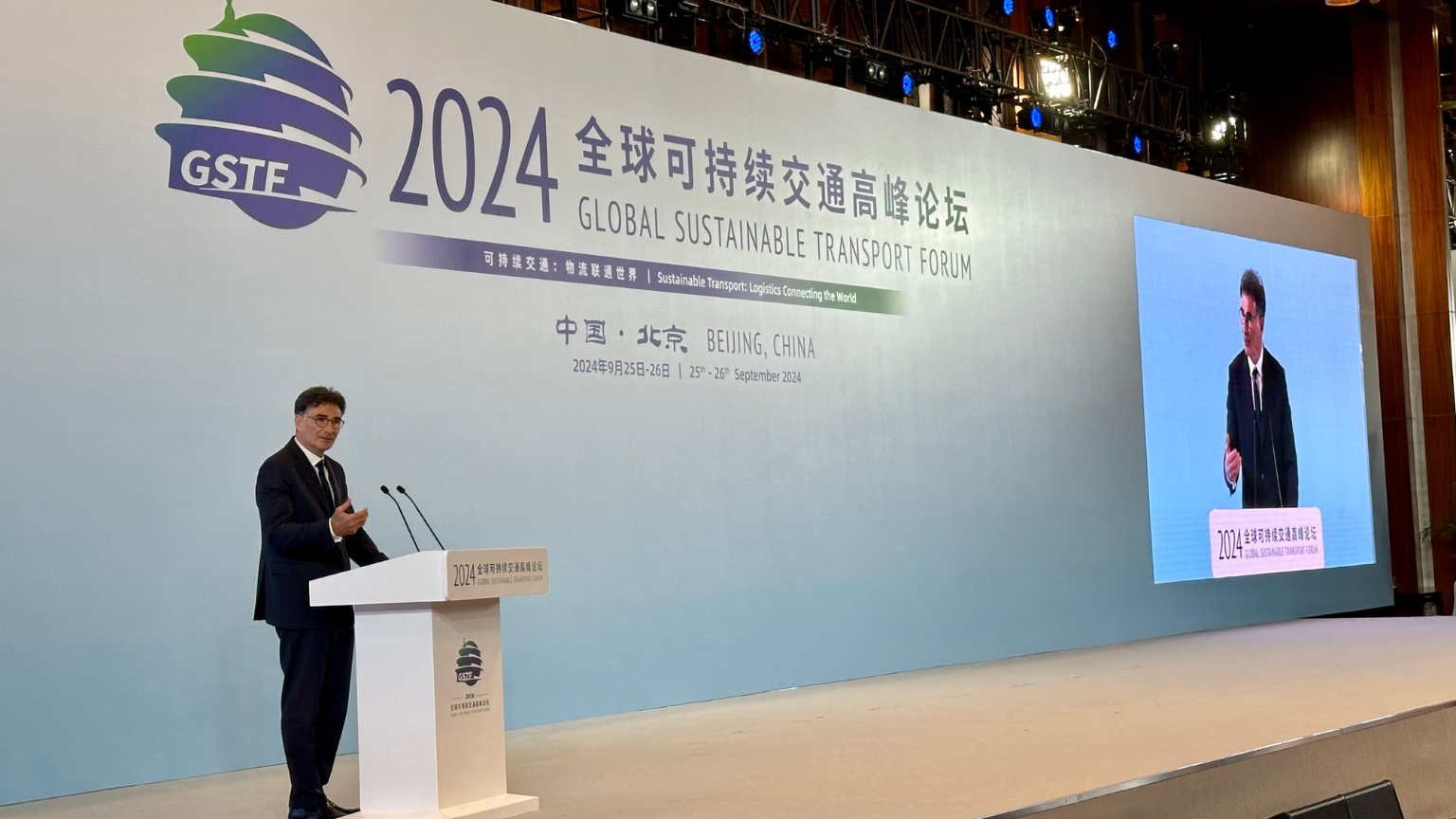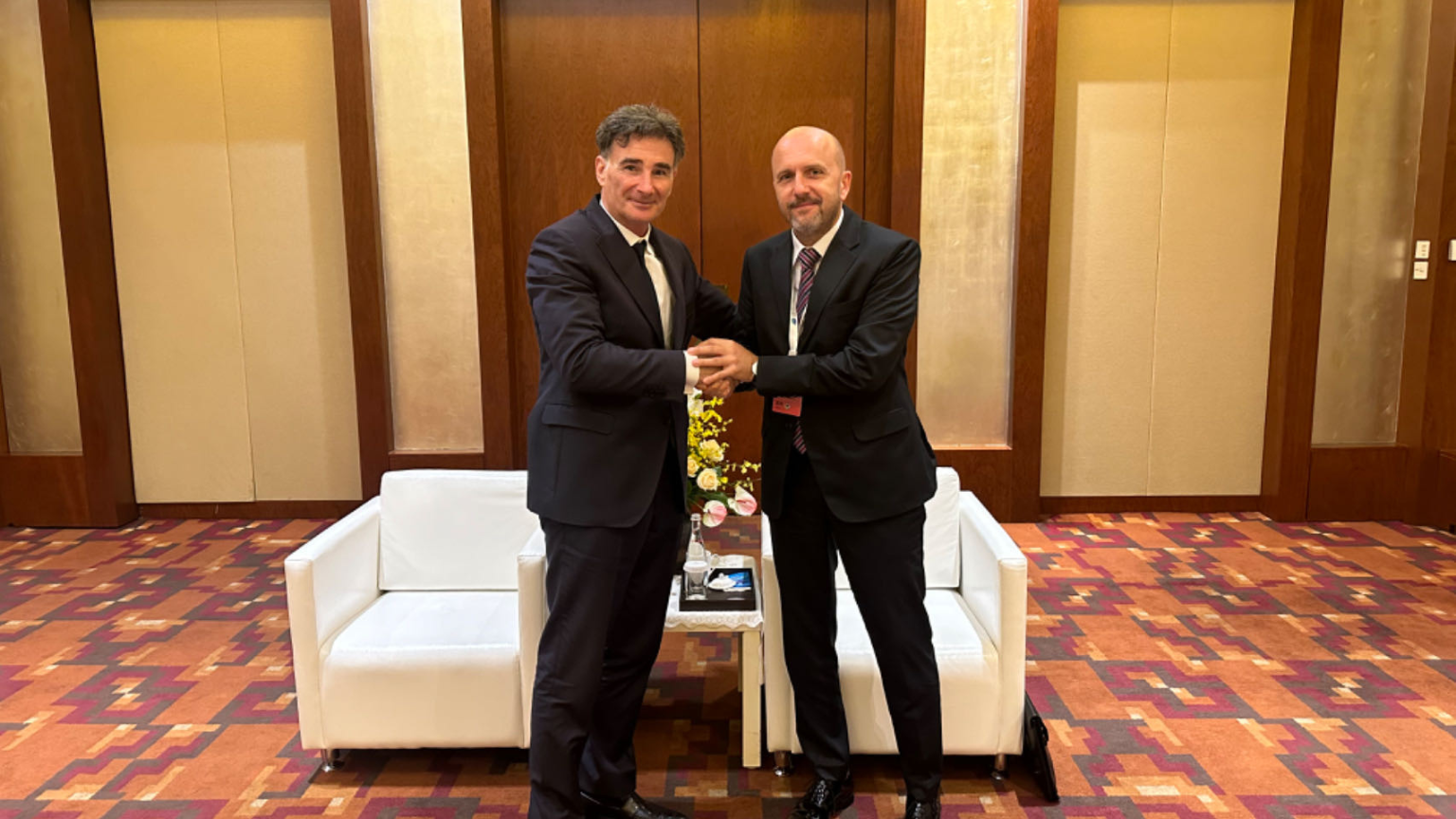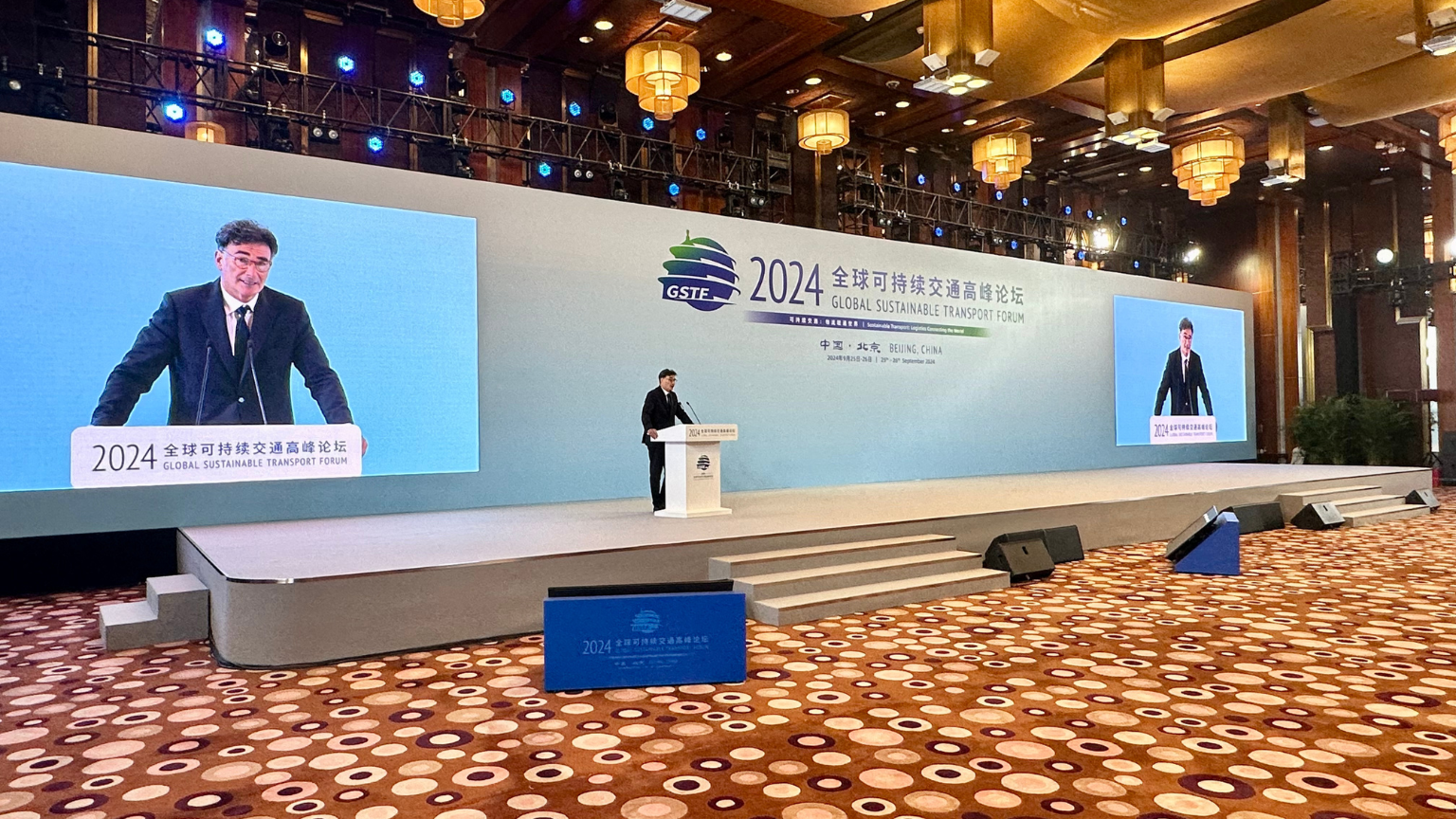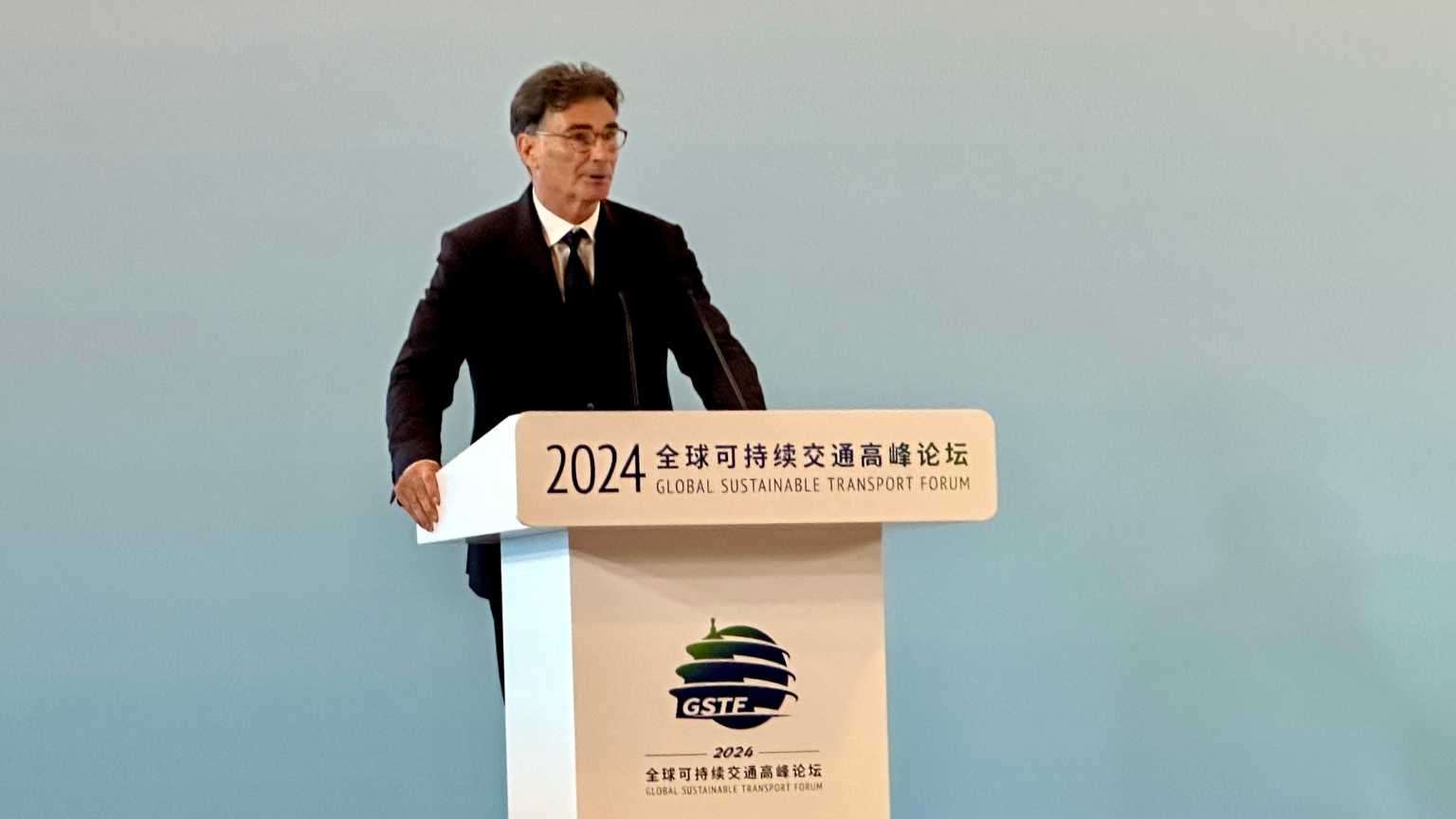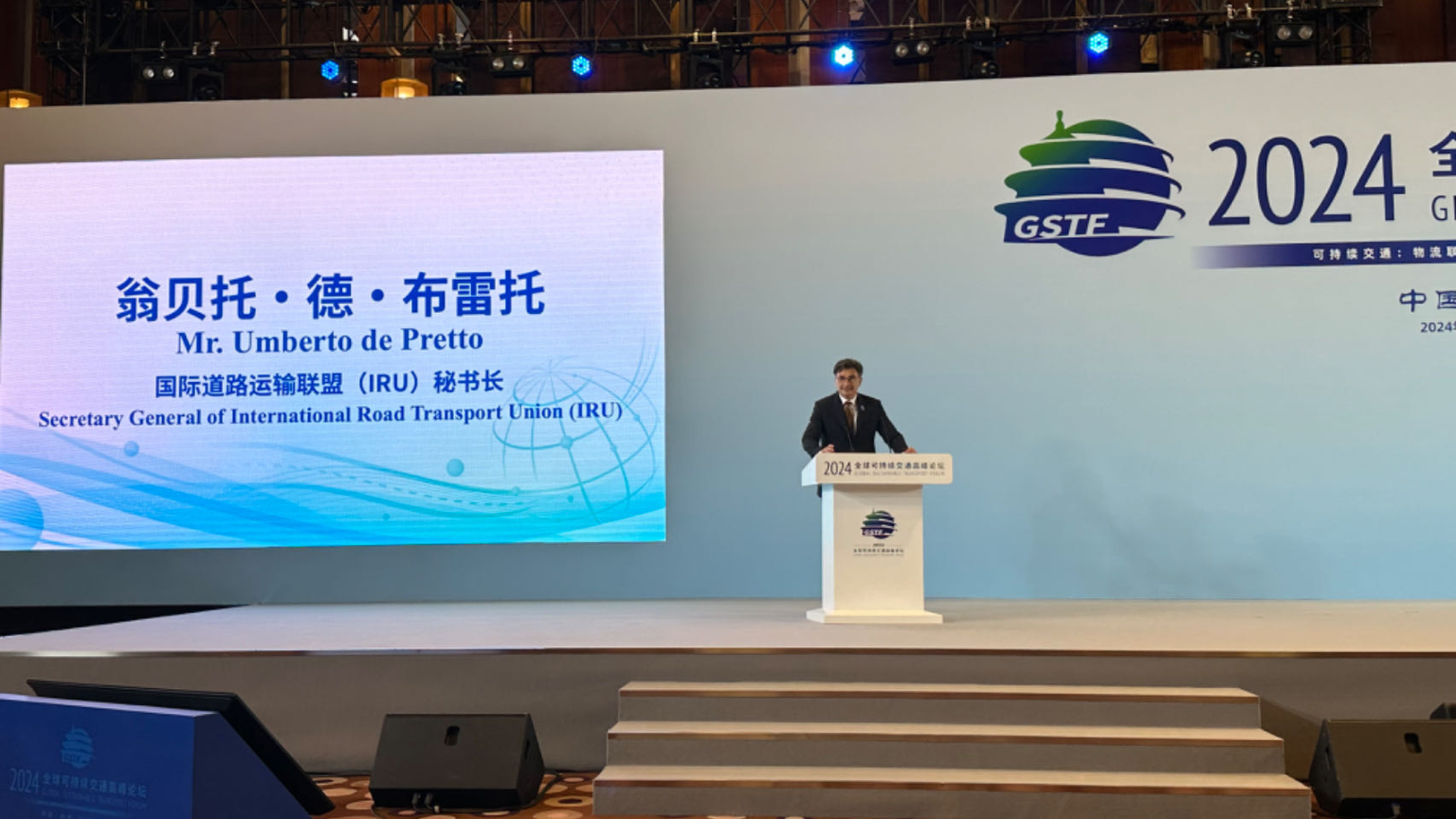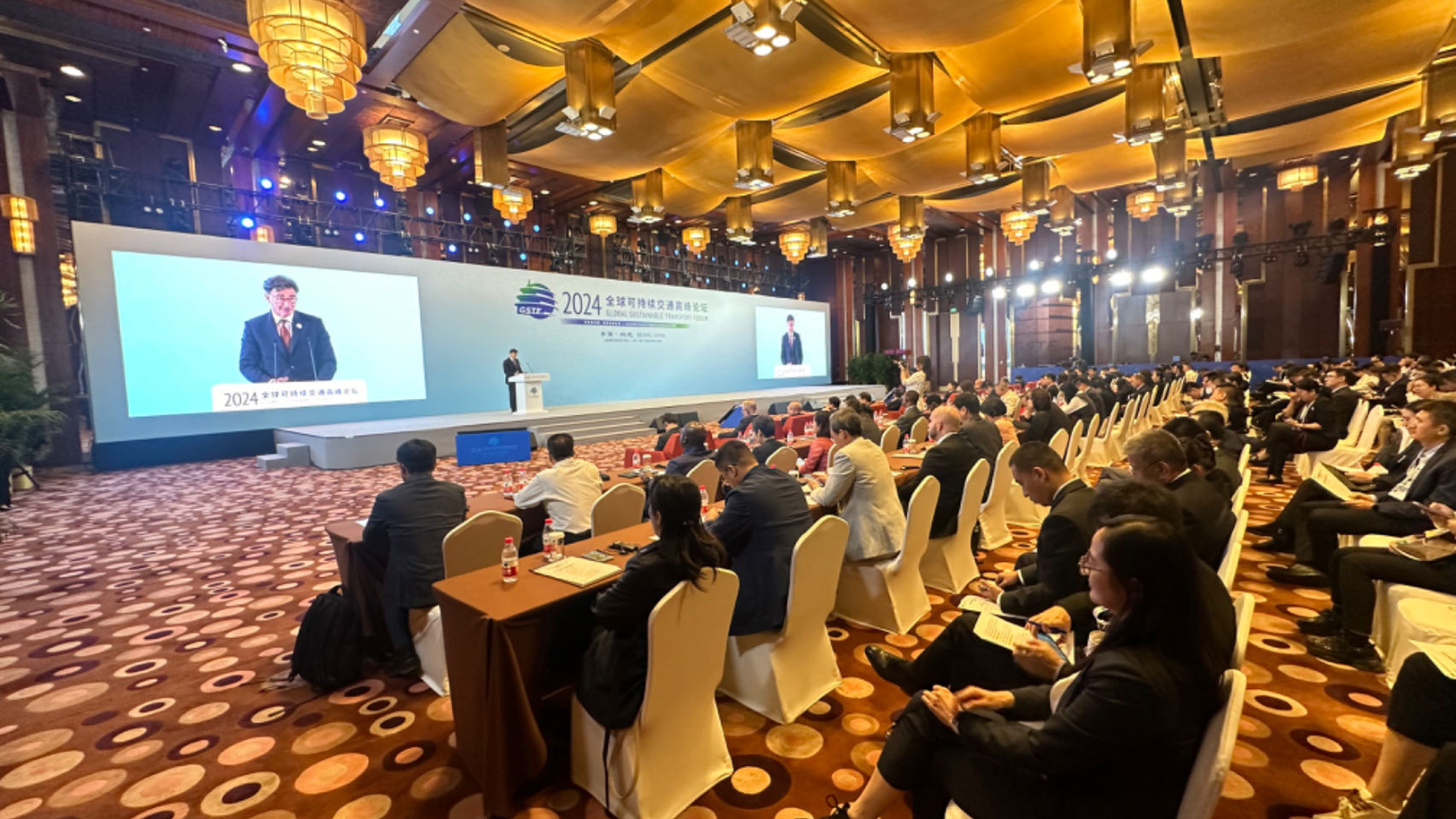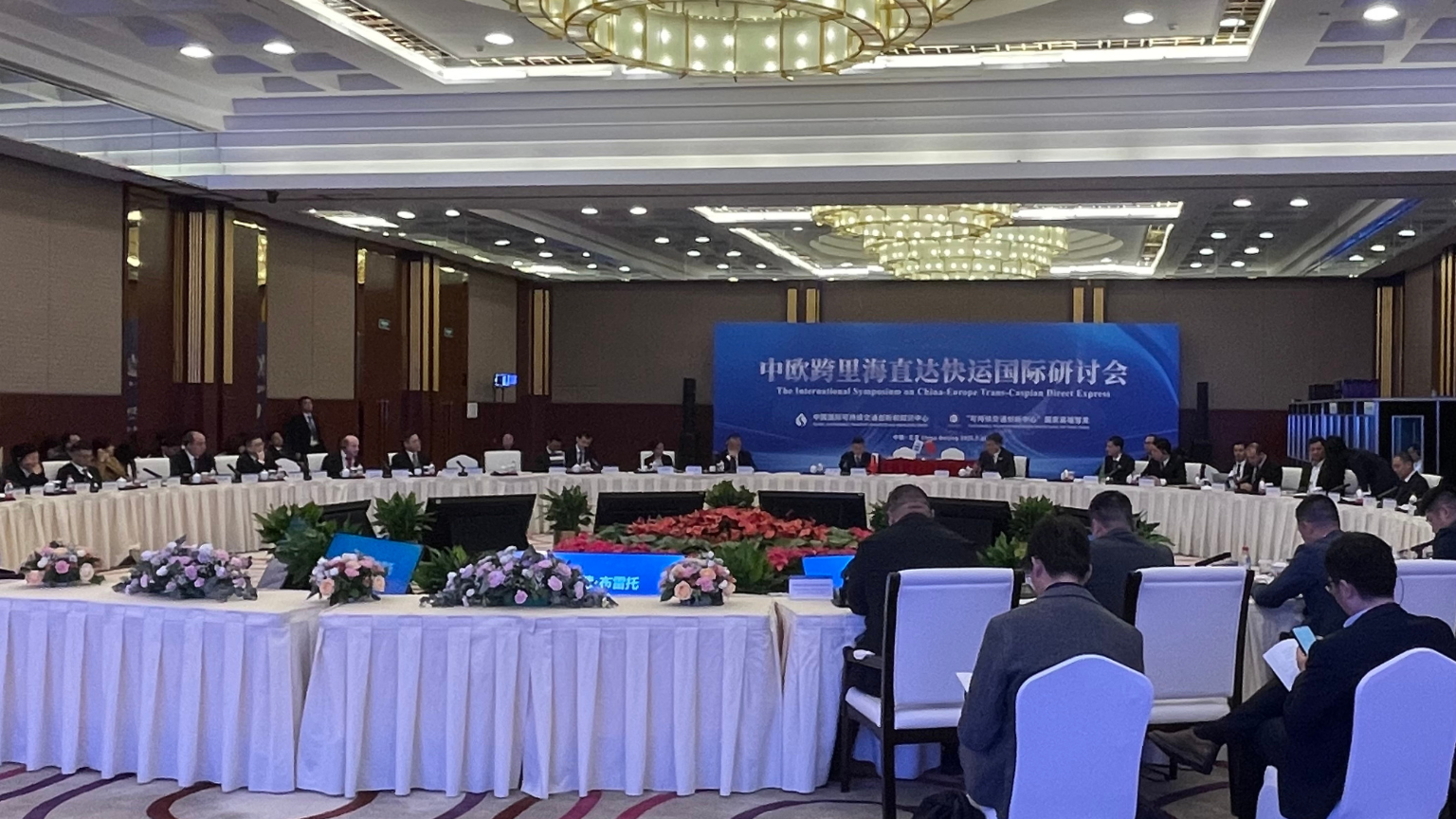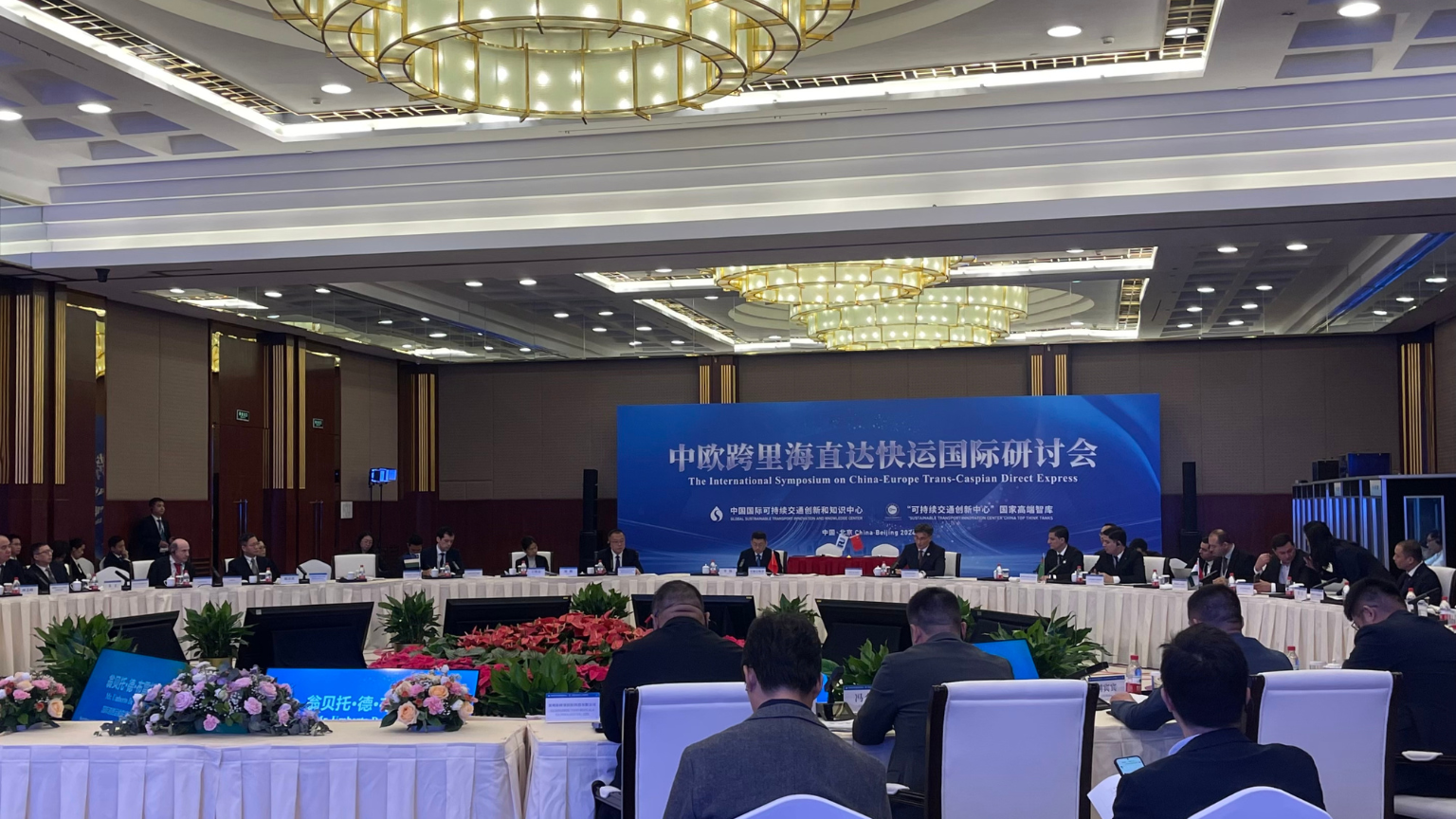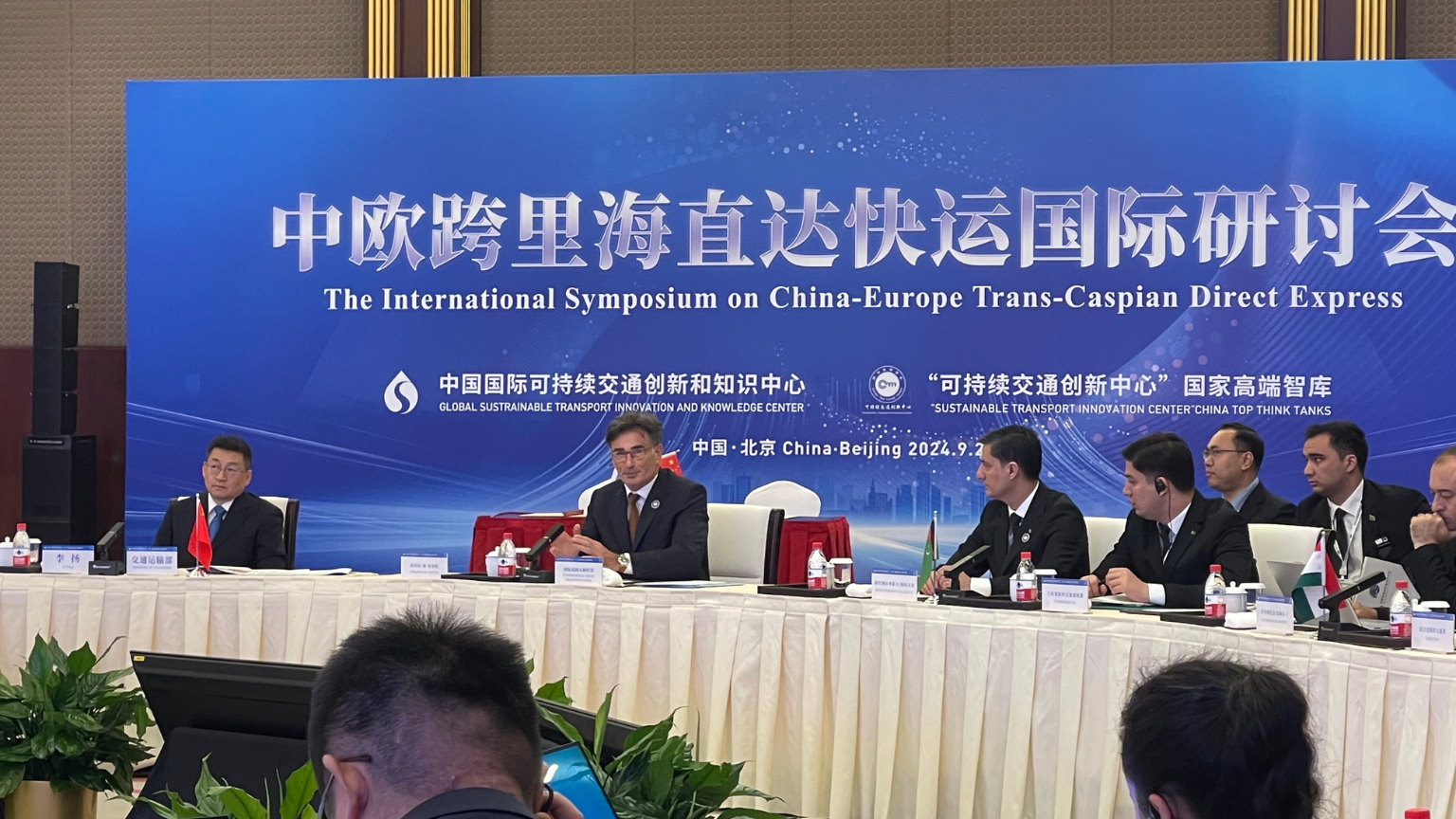What’s the path forward? IRU’s Secretary General and government and industry leaders discussed measures to ensure that global supply chains are efficient, resilient and benefit everyone at China’s Global Sustainable Transport Forum this week.
At the invitation of China’s Ministry of Transport, IRU Secretary General Umberto de Pretto attended the opening ceremony of the Global Sustainable Transport Forum 2024 this week, where he joined over 400 high-level participants, including foreign dignitaries, transport ministers and international organisation chiefs.
Umberto de Pretto then moderated the Forum’s first panel session, “Connectivity – Strengthening Cooperation in Governance and Emergency Response, and Building Resilient International Logistics and Supply Chains”. The panel’s livestream garnered over five million views.
The panellists – Alvin Liu (Vice President of Boeing Global, President of Boeing China), Han Boling (Director of Freight Transport Department of China State Railway Group), Hu Wei (Senior Vice President of JD Group and CEO of JD Logistics), MA Xiaoqun (General Manager of China Postal Express and Logistics), Wang Wei (Chairman and General Manager of S.F. Holding), Wang Xiufeng (Senior Vice President of China Merchants Group Limited) and Yan Fei (Vice President of China National Aviation Holding Corporation Limited, Chairman of Air China Cargo) – had a spirited debate on solutions to international and regional hotspot issues and how greater cooperation can build more resilient and secure supply chains.
In opening the panel, IRU Secretary General Umberto de Pretto said, “As we are all well aware, global logistics systems are under pressure: from geopolitical conflicts and unpredictable emergencies to trade protectionism and the rapid evolution of new technologies.
“So how can we build a global industrial system that is secure, stable, efficient, open and mutually beneficial?
“And how can we ensure that it supports economic growth and improves the well-being of people across all nations?
“We have a tried-and-tested solution available to us: the TIR system. For 75 years, TIR has been ensuring that goods cross borders efficiently and securely. It’s up to us, governments and the industry, to use the tools at our disposal and boost the resilience and sustainability of supply chains and trade.”
The panelists shared their strategic plans on how to enhance the resilience of supply chains while emphasising the critical importance of cooperation.
Following the panel debate, Umberto de Pretto and the Deputy Director General of the Universal Postal Union Marjan Osvald further discussed some of the key points that had emerged during the panel on how to facilitate international trade and cross-border e-commerce. They also exchanged on decarbonisation measures, including IRU’s Green Compact, the road transport sector’s roadmap to hit net-zero emissions by 2050.

